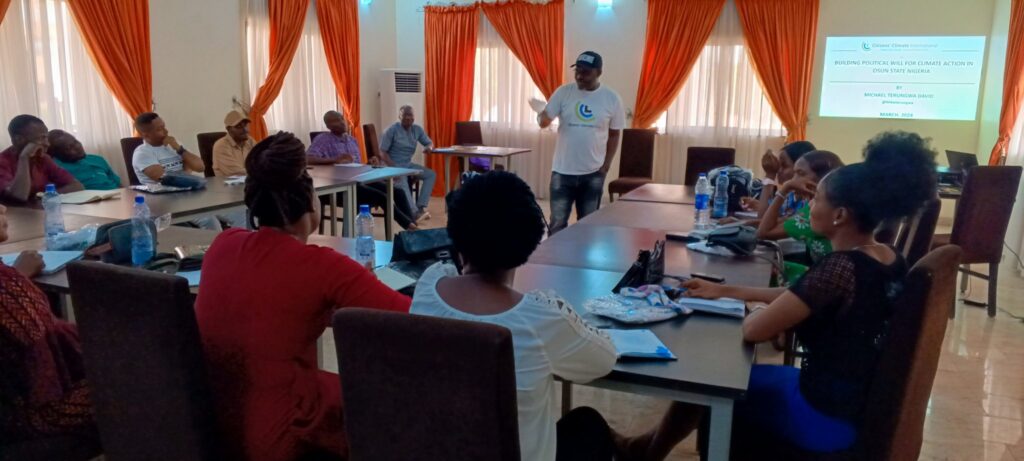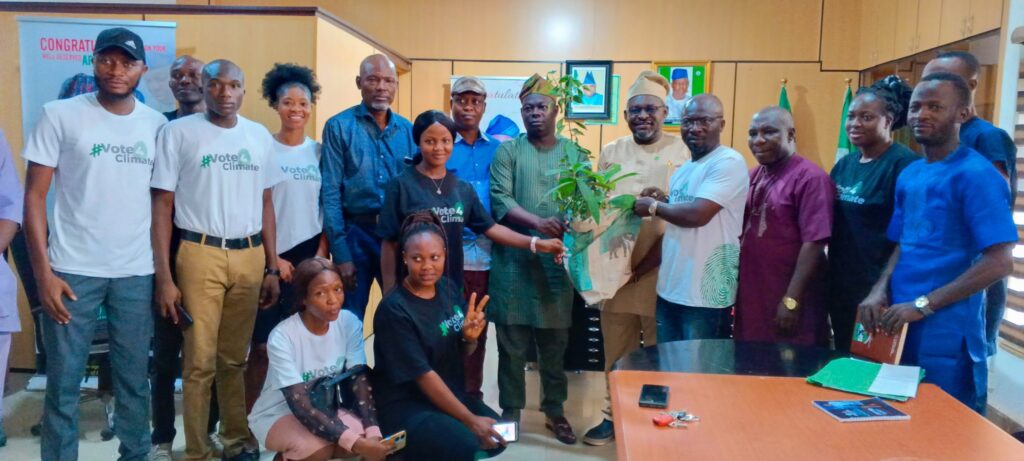Climate change is a pressing issue that requires policy actions at all levels of society. While national efforts often dominate the conversation, the impacts of climate change are most profoundly felt at the grassroots level—within our communities and among the youth. Recognizing this, GIFSEP in partnership with Vote4ClimateNG and Citizen’s Climate International launched a significant initiative in Osun State, Nigeria, to train young climate advocates in policy advocacy.

A total of 17 young persons from Osun State participated in a comprehensive training program focused on climate policy advocacy. This program aimed to empower these young advocates with the knowledge and skills needed to champion climate policy within their communities and at the state level.
Over two days, participants were immersed in various aspects of climate science, the implications of climate change for local communities, and effective advocacy techniques. They learned how to engage with policymakers, develop community-specific solutions, and mobilize support for climate action.
The training culminated in a practical exercise where the newly trained advocates led an advocacy visit to key government institutions. They met with the Chairman of the House Committee on Environment and the State Commissioner for Environment at the Osun State legislative house and the State Ministry of Environment. During these meetings, the advocates passionately called for the passage of a climate change bill for Osun State. Their efforts aimed to ensure that climate policy becomes a priority at the state level, addressing the unique challenges faced by their communities.

This initiative marks a crucial step towards embedding climate policy within Osun State. By training and empowering young advocates, we are fostering a new generation of leaders equipped to tackle climate change head-on. Their work will lead to increased community engagement, greater awareness of climate issues, and the development of robust local climate policies.
Moreover, this program serves as a model for other states in Nigeria and beyond. It demonstrates the power of grassroots advocacy and the vital role that young people play in shaping a sustainable future.

One Response
Beautiful actions